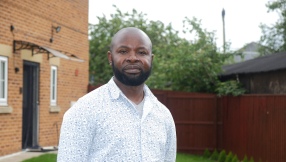In Pakistan, human rights remain a distant dream
Today, on Human Rights Day, the world marks 62 years since this declaration was adopted and in so doing, it is our hope that it will remember those countries where human rights remain a distant dream.
At the time of writing, 45-year-old Christian woman Asia Bibi remains behind bars in Pakistan, cut off from her husband and five children, unable to live the live she is entitled to. Her crime? To question her Muslim colleagues about the merits of the Islamic faith. It is astounding that in Pakistan today that a person could be sentenced to death over a few words that Muslims found disagreeable.
In a country where police and politicians alike are willing to turn a blind eye to the violent antics of Islamic extremists, proof of the crime is not necessary – a simple, unfounded accusation is all that is needed to put an innocent Christian or other faith minority behind bars or in the case of Asia Bibi, into the hangman’s noose. It is not simply that the outcome of Asia’s trial is so horrifying. The trial itself saw an appalling miscarriage of justice by which the judge refused to even hear her account, despite the fact she has always insisted that the claims made against her are false. Her pardon and release is the only acceptable outcome to this sorry saga.
Asia is the first Christian woman to be sentenced to death in Pakistan for blasphemy but even where those convicted of blasphemy do not receive a death sentence, they can languish for years behind bars before their case is ever brought to trial and if they are found innocent, must sometimes spend many more years in hiding from extremists who want to take the law into their own hands. Despite repeated calls from human rights groups like CLAAS, the UN, governments and church leaders the world over, her case shows that the Pakistani government is more determined than ever to continue in the subjugation of the very citizens it is supposed to protect.
Christians make up less than three per cent of the population in Pakistan but that should not make them any less entitled to the protections and privileges enjoyed by Muslims, the majority in Pakistan. Yet incredibly the blasphemy laws – and therefore injustice – are enshrined in the country’s constitution. Sections 295-B and 295-C of the Pakistan Penal Code, which make it a crime to insult the Prophet Mohammed or desecrate the Koran. The laws effectively institutionalise discrimination and are nothing short of a green light to radicals to mistreat minority faiths.
Sadly, as Asia’s case shows, that green light has not been missed by the radicals. Far from it. Christians across Pakistan are routinely beaten, attacked, raped, kidnapped, threatened with death and killed. What have they got to lose when the state also thinks insulting Islam is a crime worthy of death? The blasphemy laws continue to be a sword hanging over the heads of innocent Christians who live every day knowing that they can be accused at any time, that the law is not on their side, and that the police who should protect them are in some cases among the perpetrators. From the grassroots interactions within communities, to the highest courts in the land, to the Pakistani parliament - where those who could change the laws refuse to do so – discrimination against Christians is tolerated and even encouraged.
On this Human Rights Day, we wish to remind the Pakistani government that Christians are Pakistanis too. They are people who love their country and who work hard for their country, and they wish to practice their faith and express their beliefs without fear of being killed by extremists or executed by the state.
We therefore appeal to the Pakistani government to repeal the blasphemy laws and make every effort to build a society that reflects and upholds the principles of the Universal Declaration of Human Rights, particularly Article 18. The protection of human rights is not something to be feared, but the foundation of any flourishing society.
As the first line of the Preamble to the Universal Declaration of Human Rights states, “recognition of the inherent dignity and of the equal and inalienable rights of all members of the human family is the foundation of freedom, justice and peace in the world”.
Nasir Saeed is the UK Coordinator of the Centre for Legal Aid, Assistance and Settlement (CLAAS), a charity which supports persecuted Christians in Pakistan www.claas.org.uk













